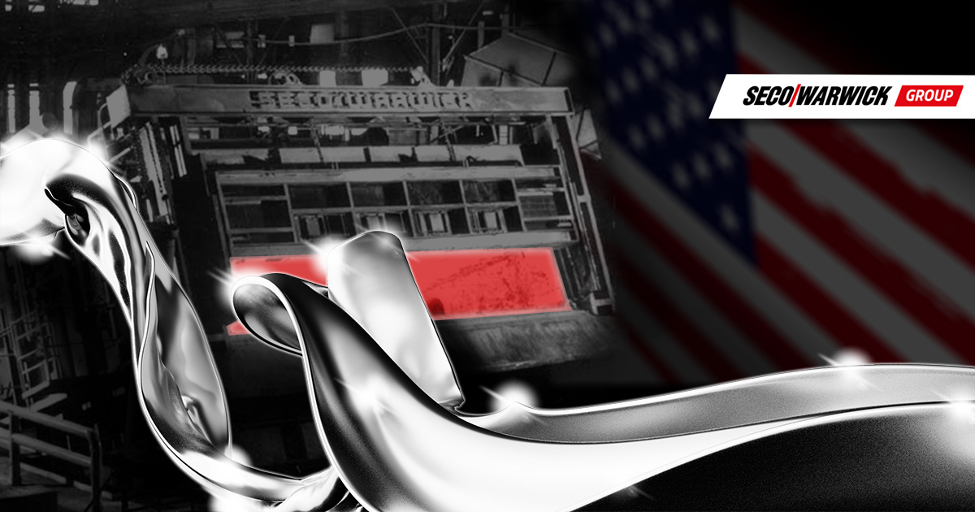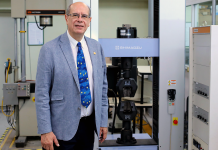A major multinational aluminum producer has finalized an order for a new 100,000-pound capacity tilt melting aluminum furnace for one of its regional aluminum extrusion plants.
Seco/Warwick USA will fabricate the aluminum reverb furnace in Pennsylvania. Several innovative features have been incorporated to meet the customer’s efficiency, production, and capacity requirements, along with options that accelerate melting and transfer flow.
This is a melting furnace, designed to reduce the charge of aluminum scrap to a molten bath that will then be tilted and poured into an adjacent tilting holding furnace, which was built and installed by Seco/Warwick about 10 years ago, where further purification and alloying occurs prior to casting.

The furnace hearth will have dimensions of 20’-10” wide by 14’-3” long by 34” deep, giving it a full capacity of 100,000 pounds of molten aluminum. The furnace will be custom-designed to fit in an existing constrained space. Based on the dimensional constraints, a single pair of North American Twin Bed II regenerative burners were chosen as they have more compact regenerative beds than alternate burner brands, offering higher efficiency gains for the same amount of physical space. Regenerative burners work in pairs with one firing and the other exhausting. They recuperate otherwise wasted heat in the exhaust gasses by using it to preheat the incoming combustion air. Another optional feature will allow for a magnetic stirrer (supplied by the customer) to be mounted under the furnace, saving more energy by increasing the melt rate by up to 10 percent.
In addition to the regenerative burner and magnetic stirrer, efficiency gains will also be realized from the customer’s existing top-loading charging machine, allowing for charging without opening the door.
“Most of the damage to a furnace like this is from loading it with a forklift,” said Marcus Lord, managing director Seco/Warwick USA. “Either bumping into the refractory around the door or being a bit clumsy with large awkward chunks of aluminum. It means the door is open a lot, and when it is closed, it might not have the best seal because the sills, jams, and lentils are all beaten up. This furnace has a separate loading mechanism, so the door doesn’t need to open nearly as often. It really extends the life of the refractory, but it’s a huge efficiency boost, too.”
When it is time to pour the molten aluminum into the holding furnace, two 14-inch diameter hydraulic cylinders tilt the entire furnace. To ensure uninterrupted operation, they are powered by a redundant pair of hydraulic pumps. To ensure fail-safe operation, the entire hydraulic tilt system allows for emergency lowering in the event of power failure or other hazardous conditions.
The combination of properly sealed doors, on ratio burner firing furnace, pressure control, and the proposed refractory lining will provide a fuel economy when the burners are firing in the regenerative mode of less than 1200 BTU per pound during the melt cycle.
The furnace will complete one full batch cycle in under six hours, for four batches a day, yielding a total of 340,000 to 400,000 pounds per day. It is an impressively large production output, but it is also an impressively small fuel consumption to achieve it. Such efficiency, however, is not limited to brand-new furnaces. Seco/Warwick USA can also retrofit old furnaces from any manufacturer with the latest clean burner technology, waste heat recuperation, loaders, insulation, PLC controls, and more.
MORE INFO: www.secowarwick.com
CAPTION:
In fabricating an aluminum reverb furnace, Seco/Warwick USA incorporated several innovative features to meet the customer’s efficiency, production, and capacity requirements, along with options that accelerate melting and transfer flow. (Courtesy: Seco/Warwick)
























